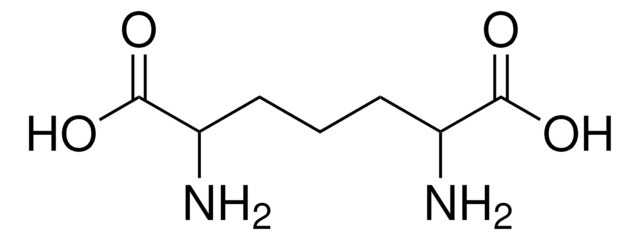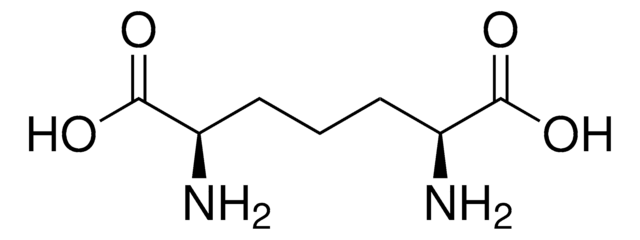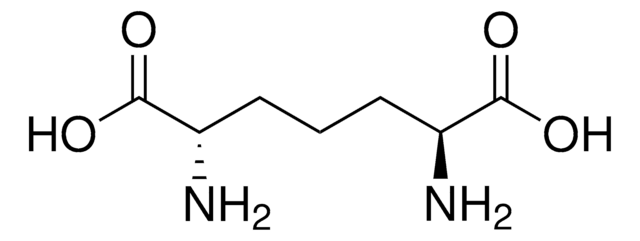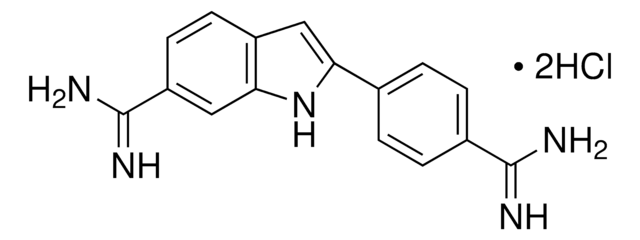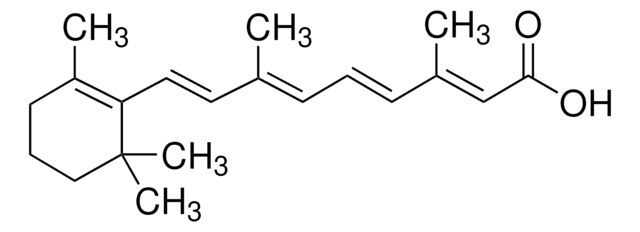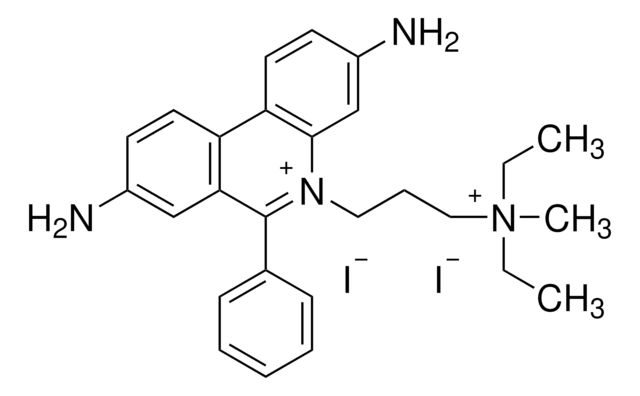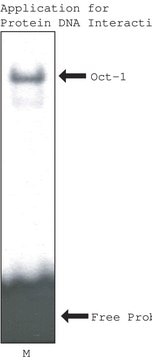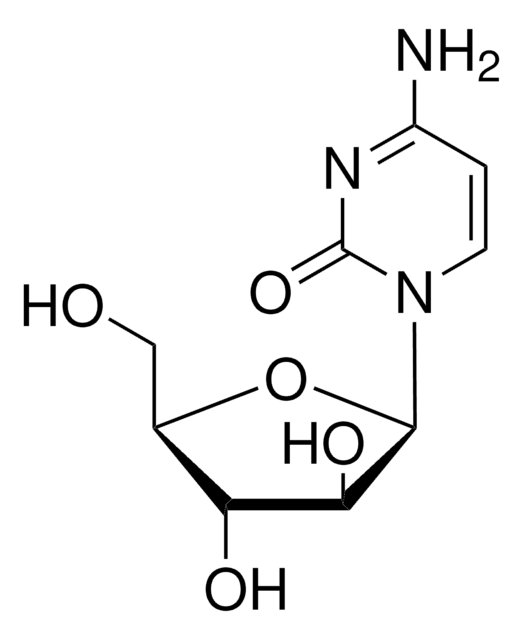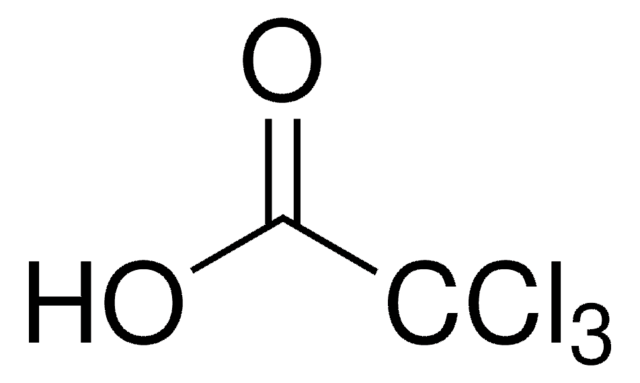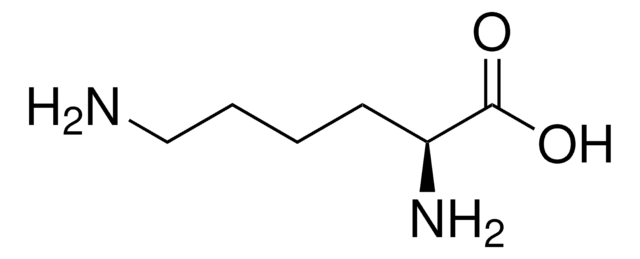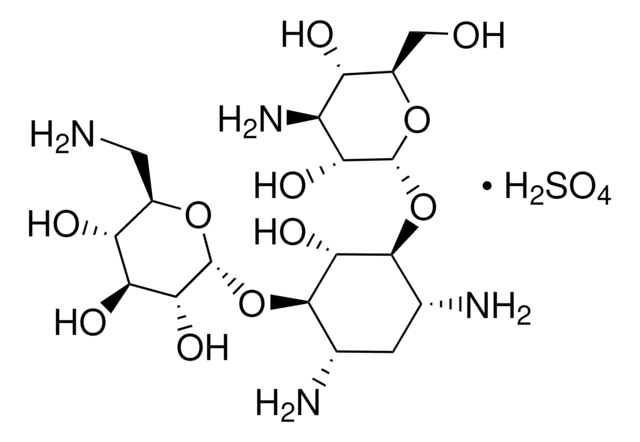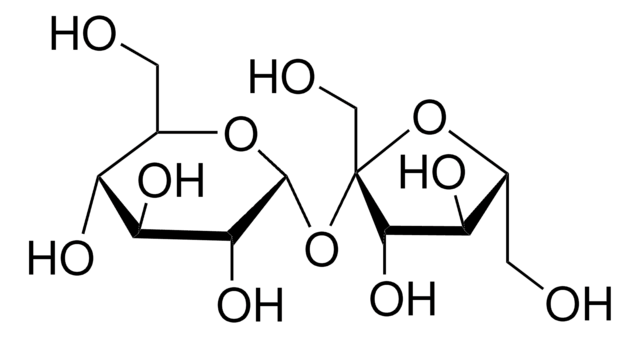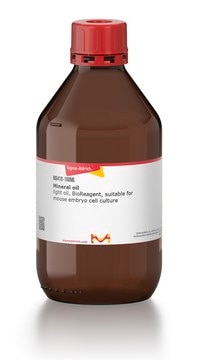D1377
2,6-Diaminopimelic acid
≥98% (TLC)
Synonym(s):
2,6-Diaminoheptanedioic acid
About This Item
Recommended Products
Quality Level
assay
≥98% (TLC)
form
powder
technique(s)
thin layer chromatography (TLC): suitable
color
white to off-white
mp
~295 °C (dec.) (lit.)
application(s)
peptide synthesis
SMILES string
NC(CCCC(N)C(O)=O)C(O)=O
InChI
1S/C7H14N2O4/c8-4(6(10)11)2-1-3-5(9)7(12)13/h4-5H,1-3,8-9H2,(H,10,11)(H,12,13)
InChI key
GMKMEZVLHJARHF-UHFFFAOYSA-N
Looking for similar products? Visit Product Comparison Guide
General description
Application
- as a supplement in glucose minimal media for screening Bacillus subtilis(44)
- as a component of lysogeny broth (LB) agar for screening E coli transformants(45)
- as a standard in thin layer chromatography for the characterization of DAP isoforms from Streptomyces strains(46)
Biochem/physiol Actions
Other Notes
signalword
Warning
hcodes
Hazard Classifications
Eye Irrit. 2 - Skin Irrit. 2 - STOT SE 3
target_organs
Respiratory system
Storage Class
11 - Combustible Solids
wgk_germany
WGK 3
flash_point_f
Not applicable
flash_point_c
Not applicable
ppe
dust mask type N95 (US), Eyeshields, Gloves
Certificates of Analysis (COA)
Search for Certificates of Analysis (COA) by entering the products Lot/Batch Number. Lot and Batch Numbers can be found on a product’s label following the words ‘Lot’ or ‘Batch’.
Already Own This Product?
Find documentation for the products that you have recently purchased in the Document Library.
Customers Also Viewed
in natural samples using volatile-ion-pairing reverse-phase liquid
chromatography?electrospray ionization tandem mass spectrometry
Our team of scientists has experience in all areas of research including Life Science, Material Science, Chemical Synthesis, Chromatography, Analytical and many others.
Contact Technical Service